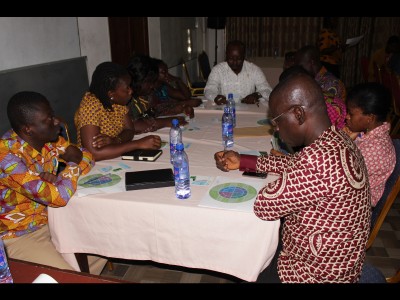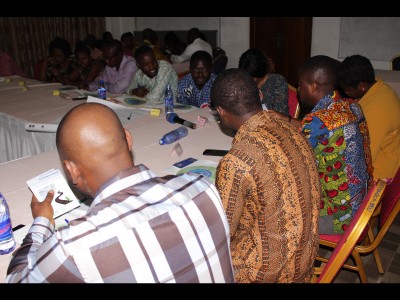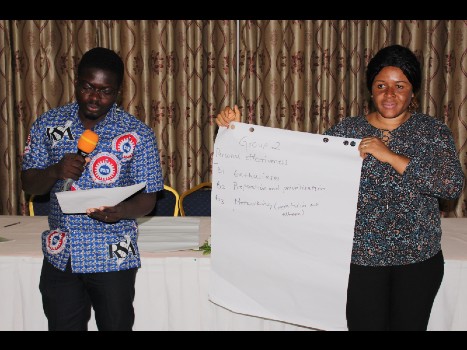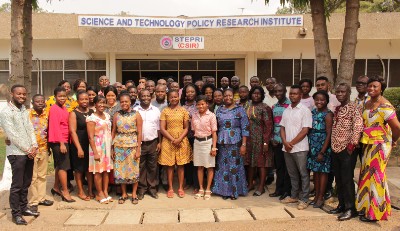



As part of the Implementation Funded Activities of the Climate Impact Research Capacity and Leadership Enhancement (CIRCLE) Project, The CSIR-STEPRI in collaboration with the Southern Sector Branch of the Research Staff Association (RSA), has organized two separate workshops for selected Early Career Researchers within the Greater Accra, Eastern and Western regions of Ghana.
The first workshop was on Mentoring and Career Development. Presenting on Mentoring, Dr Charity Osei Amponsah spoke on the Overview of Mentoring, The Mentoring Process, Communication in Mentoring and the Challenges of mentoring.
Presenting Researcher Development Framework to plan a career path, Mrs. Mavis Akuffobea-Essilfie (Post-Master’s Fellow, Cohort 3), shared her experiences during her Visiting Fellowship as a guide in explaining how to plan their career paths. Together with, Dr. Richard Ampadu-Ameyaw, the CIRCLE ISP Lead in STEPRI, they took participants through the Researcher Development Framework (RDF).
Dr. Wilhemina Quaye, Director of the institute, also presented on Factors to reflect on when considering a career & keeping a balance between Academia and Industry. She shed light on benefits (Salary, Insurance, retirement contribution travel opportunities, capacity building opportunities), Growth opportunities (advancement opportunities within the company will give you a better picture of your future, to invest your time and talents in the company long-term; how long do you have to stay in the same position), Educational opportunities (Short courses or professional degrees; are resources available?). Company history and stability (be realistic about whether it’s a good time for you to stay on).
She closed her presentation with a few thoughts on how to develop yourself in a scientific career oriented environment and some of the challenges one could face such as getting funding, Lack of support or becoming isolated, Lack of skills (for example, in writing proposals and publishing, communication, research), Lack of relevant data/literature for work, maintaining a focused research area or field.
Dr. Mrs. Charity Osei Amponsah facilitated the second workshop which was the training on Research Proposal Writing. She discussed tips on topics like what goes into a Research proposal writing. Here she stressed on the fact that the project idea has to be original, well-founded scientifically with clear perspectives such as the project idea fitting with the fund, Team members CV must match fund requirements, well written project description and a realistic budget. She ended her presentation on, networking and collaborations, identifying potential funders and Dealing with rejection.

